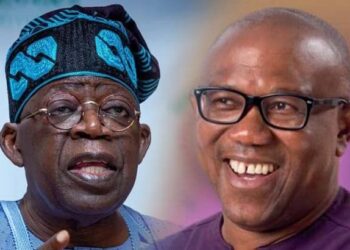 Nigeria’s economy is expected to grow more slowly this year than previously forecast as investors hold off before elections in early 2019, a Reuters poll showed on Friday, while Kenyan growth is forecast at more than double the pace.
Nigeria’s economy is expected to grow more slowly this year than previously forecast as investors hold off before elections in early 2019, a Reuters poll showed on Friday, while Kenyan growth is forecast at more than double the pace.
In the poll taken in the past week, analysts and economists’ forecasts showed a median of 2.1 percent growth for Nigeria, accelerating to 3.0 percent next year.
That was a significant downgrade from the previous poll taken three months ago, which showed Africa’s largest economy expanding 2.6 percent this year after a lacklustre 0.8 percent in 2017.
“Upcoming elections and the associated high-wire politics already underway would instigate caution on the part of economic stakeholders,” said Rafiq Raji, chief economist at Macroafricaintel in Lagos, who expects the economy to slow in the next few quarters.
“Business and investment decisions are thus likely to be postponed till after the 2019 elections,” he added.
Nigerians vote in February. On Tuesday, 16 senators quit President Muhammadu Buhari’s ruling party and the country’s third most senior politician said he might follow suit, in a blow to the leader who is seeking re-election next year.
This comes at a tough time for the economy. Growth slowed in the first quarter of 2018 for the first time since the country pulled out of recession last year as the non-oil sector struggled.
Fellow heavyweight South Africa also suffered its worst quarterly contraction in nine years, in a reminder to investors of the huge challenge President Cyril Ramaphosa faces to deliver long term economic growth.
A separate survey earlier this month showed South African GDP is expected to grow 1.5 percent this year. [ECILT/ZA] However, Reserve Bank Governor Lesetja Kganyago shocked markets last week when he revealed the Bank projects growth at only 1.2 percent, slower than last year.
It is a different story for Kenya, east Africa’s biggest economy, where analysts’ forecasts showed a median of 5.5 percent growth this year despite its debt problems. That was unchanged from a poll taken three months ago.
Growth is expected to accelerate next year to 5.9 percent, slightly faster than in the last survey.
Raji attributed this to the fact that Kenya is now an oil producer, even though robust production levels are a long way off. He cautioned that the recent suspension of production by Tullow on security grounds could cause problems.
Tullow aims to produce the first oil from its $2.9 billion Kenya project by 2021, allowing the country to export crude. However, protests and security problems have halted a pilot scheme which trucks around 600 barrels of oil per day to a storage facility in Mombasa.
Major African economies are also at risk to what may be more difficult times for the world economy.
Reuters polls of several hundred economists taken this month show global economic activity remains solid but has already passed its peak, with protectionist trade policies likely to slow activity significantly.
“(The) knock-on impact of higher trade tariffs will weigh on inflation and consumption expenditure in advanced economies,” said Gaimin Nonyane, head of economic research at Ecobank Group. “Extended risk-off sentiment is also a downside risk to price levels and growth in developing countries.”
But many sub-Saharan African economies have been relatively insulated from the challenges facing larger global economies. In Ethiopia, for example, growth has averaged nearly 10 percent for the past decade, albeit from a very low base.












